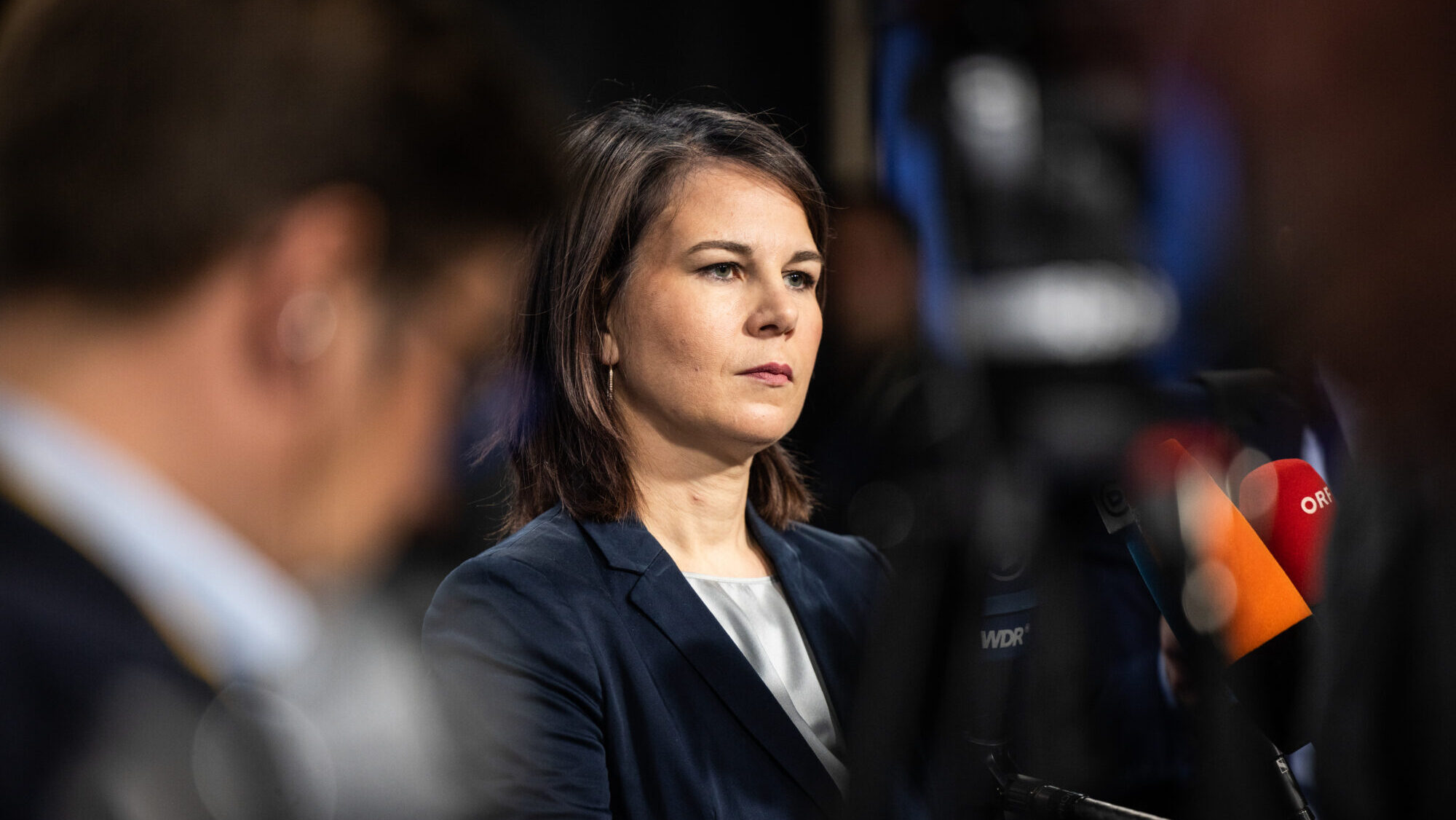
German Foreign Minister Annalena Baerbock is hosting the meeting in Berlin.
© European Union 2023
Foreign ministers of mainly Western European countries met in Berlin in a joint effort to ramp up pressure on Brussels to initiate extensive EU reforms before the bloc’s next round of enlargement. They are seeking to limit member states’ sovereignty by removing veto rights in the Council, Politico reported on Thursday, November 2nd.
The meeting between 17 foreign ministers and 11 state secretaries—representing both member states (including Germany, France, Spain, and Portugal) and EU aspirants (such as Turkey and Ukraine)—is hosted by Germany’s Green foreign minister, Annalena Baerbock.
According to senior German diplomats, the countries are preparing to sign a joint resolution calling for the abolition of unanimous voting in favor of qualified majority voting in the Council—a move that would effectively scrap veto rights. They also called for the reform of Article 7 proceedings to more effectively punish member states that are accused of violating the rule of law, and even want to limit the size of the Parliament and the Commission.
Despite Berlin’s push for the complete scrapping of unanimity, members of this reform coalition know that it is unlikely to happen, since unanimity would be needed one last time to enact the changes. Therefore, the foreign ministers also discussed certain options to circumvent the problem, such as the one Portugal proposed recently along with its reform ideas.
Lisbon’s ‘roadmap’ to EU reforms, which could have a dozen countries’ endorsement after Thursday’s meeting, aims to make sure the accession process of new EU members would happen simultaneously with structural changes in Brussels so that EU decision-making can still function with 30+ member states.
“We need to start agreeing on … what model we want for a wider European Union in the future,” Portugal’s EU Secretary Tiago Antunes explained. “What will it look like … with more member states, but more than that, with much more diverse member states.”
The timing is not accidental, as the European Commission will publish its next progress report on candidates next week, in which—according to several EU diplomats—Brussels will recommend officially opening accession talks with Ukraine and Moldova, provided that a few “technical” conditions are implemented as soon as possible, pertaining to anti-corruption, judicial independence, and protection of minorities.
Now, based on the Portuguese proposal, Western European countries would like to see enlargement and reforms to move “in lockstep,” where each step towards finalizing new members’ accession is counterbalanced with a step toward reforming the EU, Antunes said, adding that they hope the Council will back this plan during its upcoming December summit.
Portugal’s proposal for reforms would leave some room for sovereignty while still strengthening the EU’s capability to act.
As opposed to the Franco-German proposal of “concentric circles” of EU integration— with an “inner circle” of member states opting for more centralization, gradually followed by everyone—Lisbon wants more of an ‘à la carte’ solution.
According to Antunes, the EU should be more like a “building or a house” with no hierarchy between member states, where everyone is free to pursue the format that suits them best.
“There is obviously a common area that all member states share, this would be at least the single market” and all adjacent economic policies, the diplomat explained. “If you want to integrate further, you go into more rooms and you share more policies with other member states. If you don’t want to integrate as much, then you just have this common area and the few other rooms that you want to participate in.”
These extra ‘rooms’ could include migration policies, corporation tax regimes, and even qualified majority voting in foreign policy—although it is unclear how foreign policy decisions could be made by a select few without affecting others.
“The costs and the benefits of each room would be shared by the member states participating in it,” Antunes said, adding that “fundamental values” such as the rule of law would still have to be “unquestionable for everyone.”
